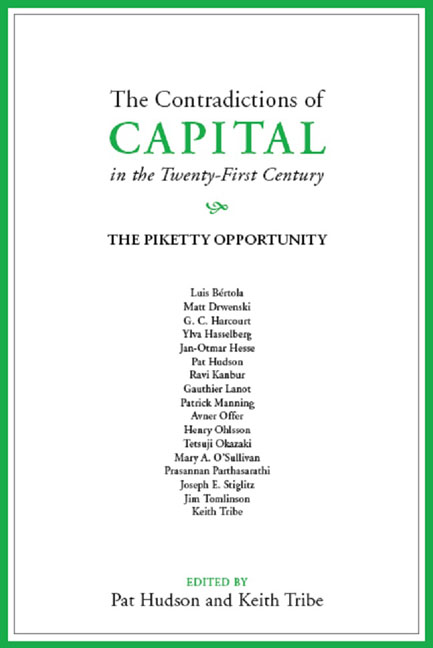9 - Distributional Politics: the Search for Equality in Britain Since the First World War
Published online by Cambridge University Press: 16 August 2023
Summary
In Capital in the Twenty-First Century, Thomas Piketty spends relatively little time discussing the politics and policies affecting inequality. However, in a subsequent reflection on the debate his book has produced, he stresses the complexity of these issues and suggests that, in the book, “[he] may have devoted too much attention to progressive capital taxation and too little attention to a number of institutional evolutions that could prove equally important, such as the development of alternative forms of property arrangements and participatory governance”. In the spirit of Piketty, this chapter starts from the need to see the complex politics and policy relating to inequality as something that can only be understood historically. The focus is on the attempts to reduce economic and social inequality that have been a key characteristic of social democratic politics in Britain since the First World War. This pursuit has had to take place in circumstances very much not of social democrats’ choosing: conditions of war, depressions and enormous changes in economic structure. As Piketty stresses, “there have been many twists and turns and certainly no irrepressible, regular tendency towards a ‘natural equilibrium’ ”. The pursuit of this goal rests on complicated ideological foundations, and there is a substantial literature that examines the relevant doctrinal history. Inequality is complex and multidimensional, but this essay is restricted to “vertical” disparities in income and wealth, which have been an important, sometimes pre-eminent, component of that broader concern.
The focus here is on the shifting policy agendas that have accompanied this concern, seeing these shifts as based on interplay between doctrinal views and changing understandings of the forces affecting income and wealth distribution. Like all understandings of modern economic life, these have been grounded in a developing field of statistics: statistics that have both helped to shape and, in turn, been shaped by contemporary political and policy concerns.
This chapter is divided into four sections. First, we discuss “classic social democracy”; this is grounded in the concept of equality articulated by R. H. Tawney, which has dominated our understanding of the period from the First World War down to the 1950s, including the construction of the “classic welfare state” in the 1940s.
- Type
- Chapter
- Information
- The Contradictions of Capital in the Twenty-First CenturyThe Piketty Opportunity, pp. 167 - 192Publisher: Agenda PublishingPrint publication year: 2016



